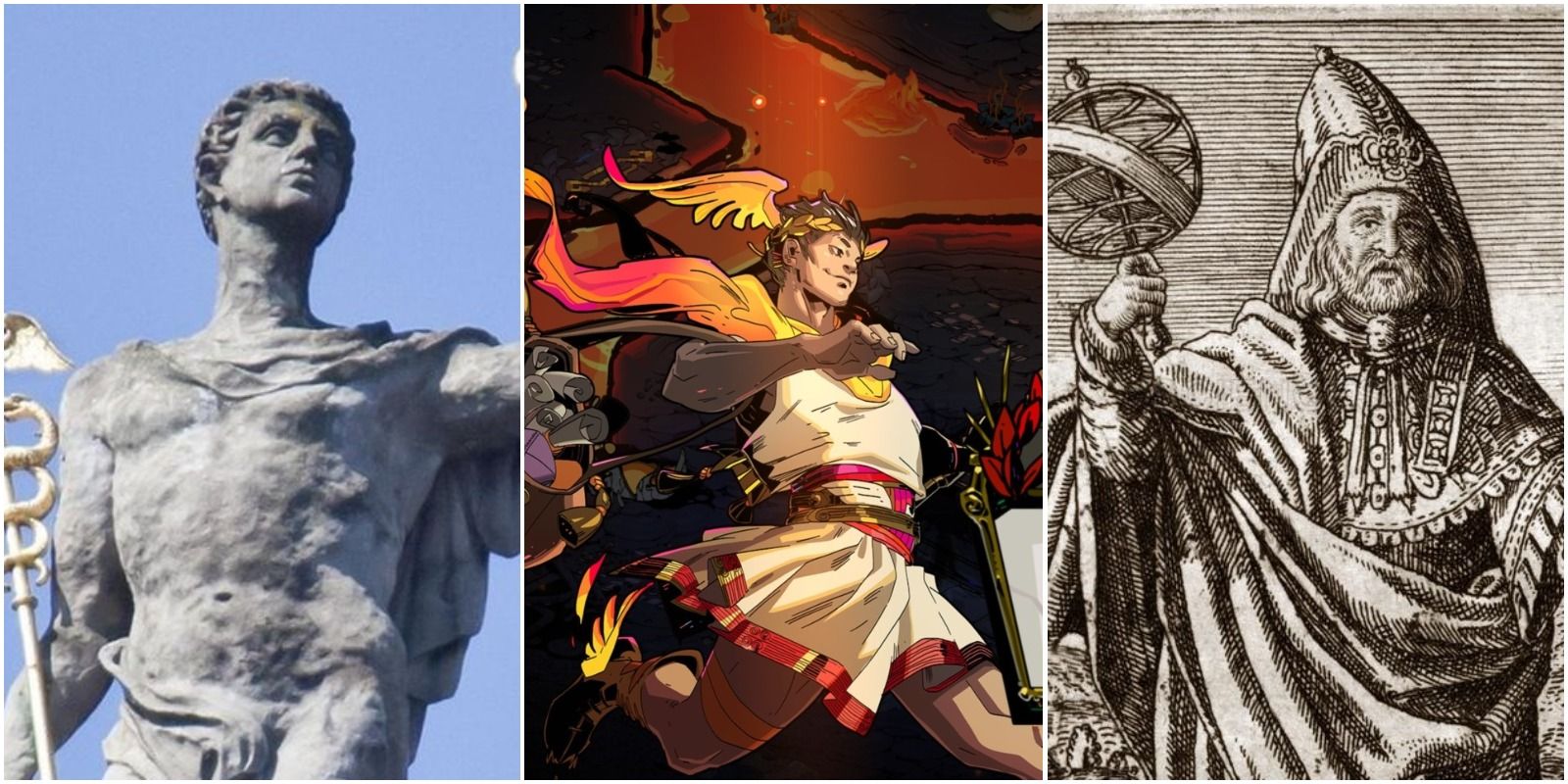
With the utility of speed in Hades, it only makes sense that the Boons one acquires from Hermes are invaluable. These support abilities allow the player to become just a little bit more slippery. Additionally, Hermes himself is also a super fun character, always with somewhere to go.
RELATED: The 10 Best Indie Games Of 2020 (According To Metacritic)
It really makes no sense how one guy has the ability to be in so many places at once. He's also pretty funny, and maybe just a little bit untrustworthy. Yet, he doesn't seem to have any malevolence in the way he talks. Who is the mysterious man with the winged sandals — both in the game and the mythology it's based on?
10 He's A Psychopomp
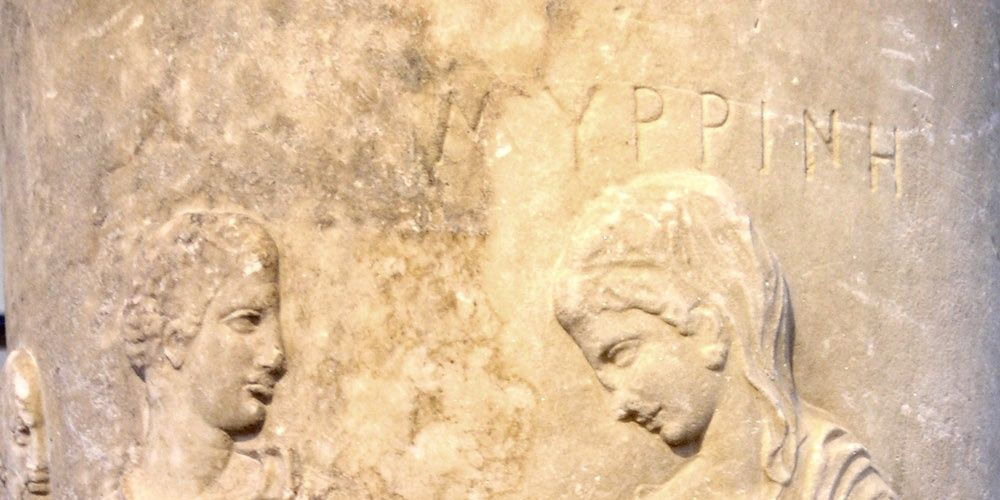
In most traditions of antiquity, like Ancient Greece, death was mysterious. In Hades, it seems like Hermes gets along with Charon, the boatman who carries the souls of the dead across the river Styx, better than most of the Olympians.
This is because Hermes had a role known as a Psychopomp. This means that he is the Olympian tasked with carrying the souls of mortals who die down to the shores of the underworld, so that Charon can take them to their appropriate destinations.
9 He's A Bit Of A Trickster
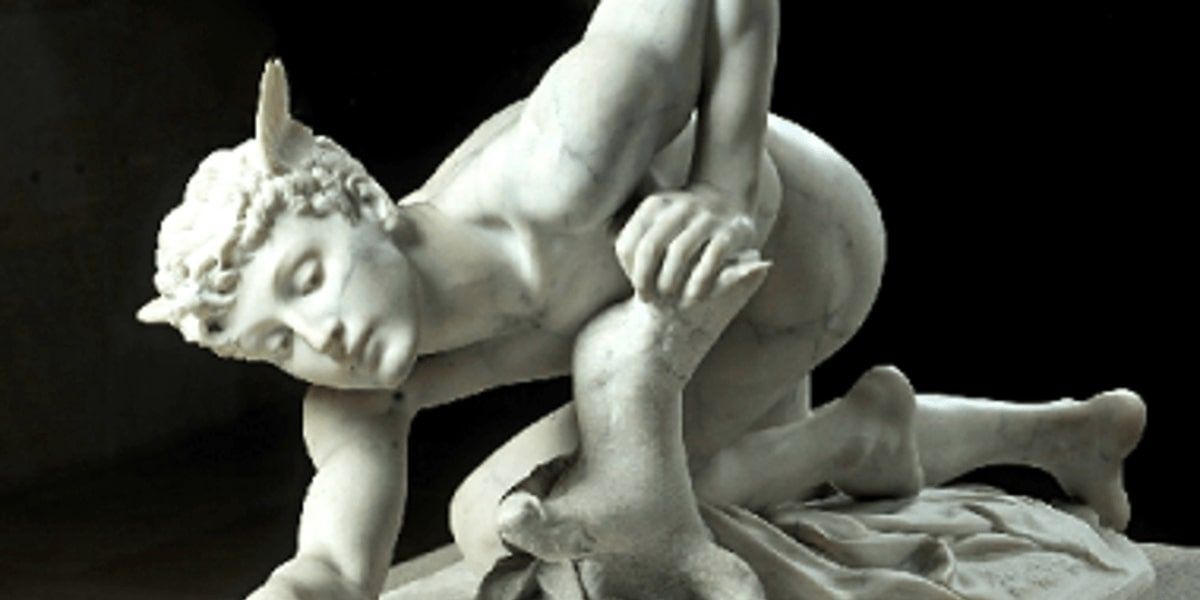
Hermes has been everywhere, seen everything, and watched tons of major world events unfold. This gives him an interesting perspective. As a result, he's a bit of a trickster, meddling in the affairs of mortals and Gods alike.
He's had a major hand in more than a few major problems, throughout several classical myths. One example is that he was instrumental in the creation of Pandora and the box she carried, which released tons of strife upon the world.
8 His Staff Is A Symbol Of Modern Medicine
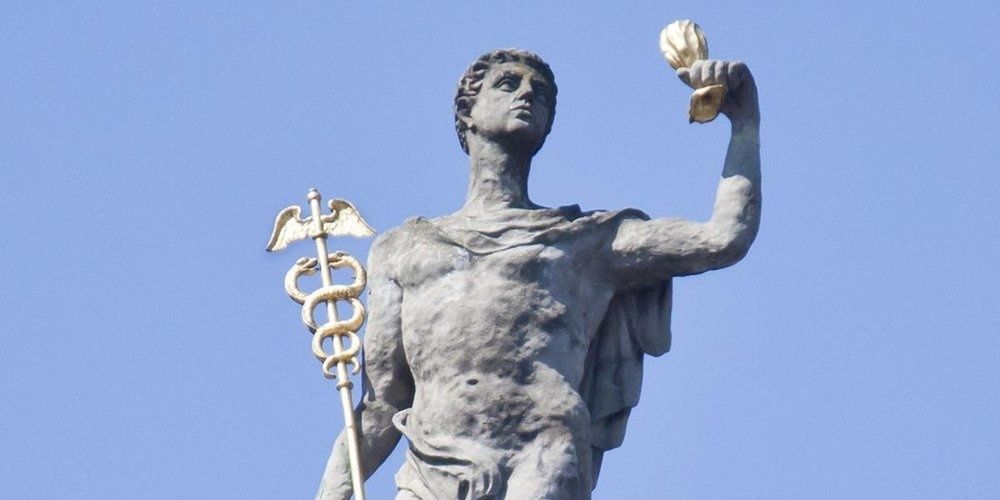
There are plenty of major symbols associated with Hermes. Some of them are animals or clothing he wears; for example as his winged cap and his winged sandals, which bless him with incredible speed.
RELATED: The 10 Best Action & Adventure Games Of 2020, Ranked (According To Metacritic)
The other major symbol that Hermes has at his disposal is the Caduceus, a staff that assists him in his magic. The staff has two serpents wrapped around it, representing knowledge, and it hass endured even until the modern era. It's commonly used by pharmacies, doctors, and other medical staff as a symbol of healing.
7 He's Very Important In Modern Occultism
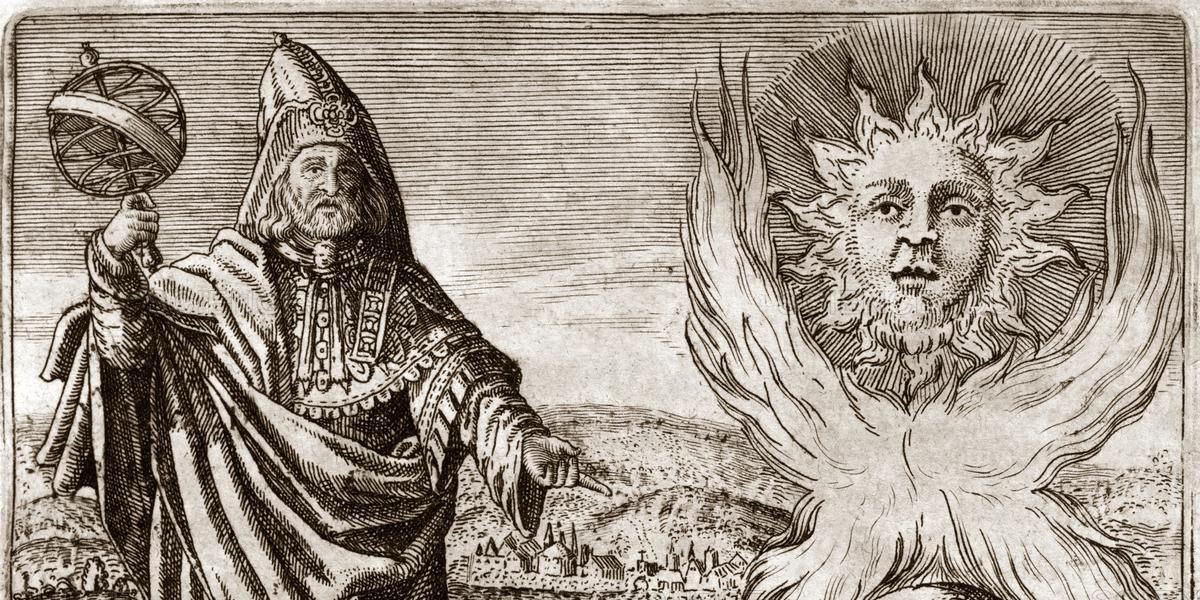
Hermes had plenty of cults devoted to his worship in antiquity, and that hasn't exactly changed in the modern era. While most Olympians had cults popping up sporadically, it was rare for all 12 to be shown favor by one village.
Over the years, some of the early church fathers of Christianity admired Hermes so much that they tried to appropriate his image. A result was his inclusion in alchemy and Christian mysticism, as a figure known as Hermes Trismegistus. These traditions carry on today.
6 He's Most Likely Pre-Greek
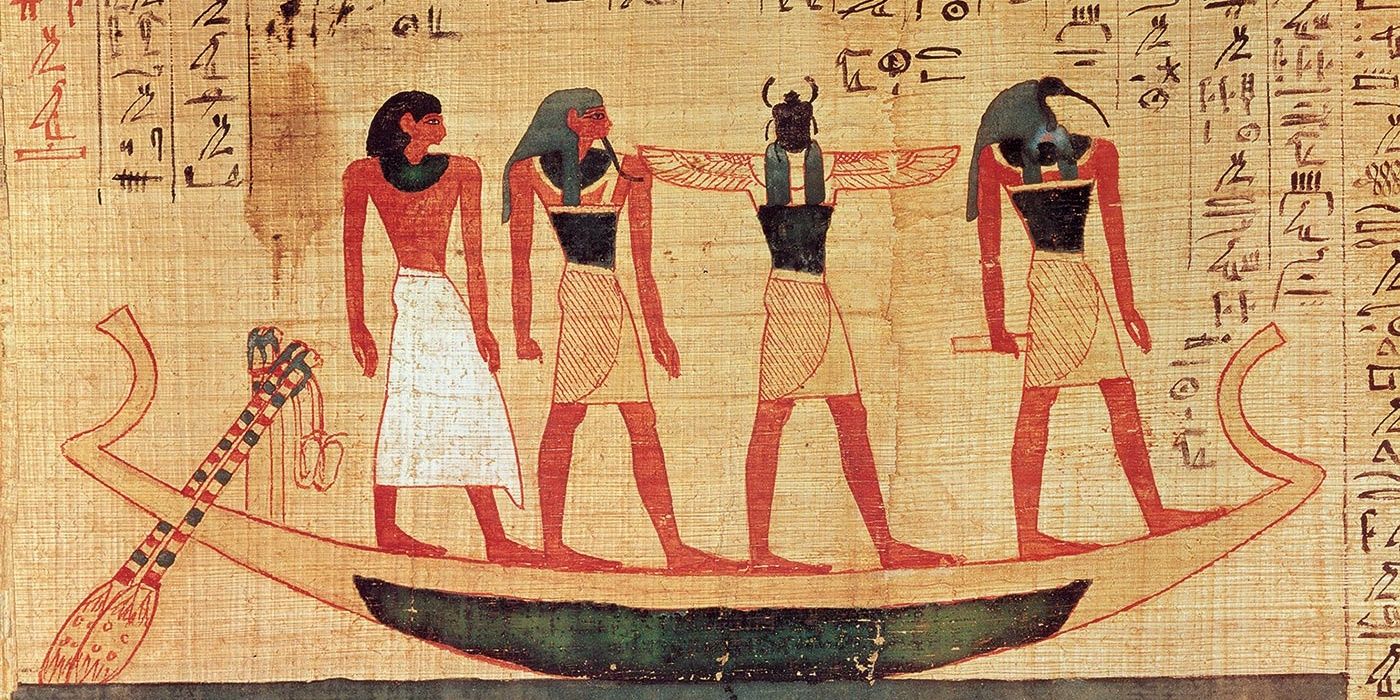
Hermes' origin in Greek society is a bit complicated. A lot of scholars believe that he's actually been around for much longer than previously understood, albeit in different forms.
It's complicated to try and tracing the beginning of religious figures' prevalence in societies. However, it's assumed that Hermes was around before the Greeks. Some claim that he's derived from the Egyptian God of knowledge, known as Thoth. Others think he's even older, first showing up in Mesopotamia.
5 He's Pan's Father
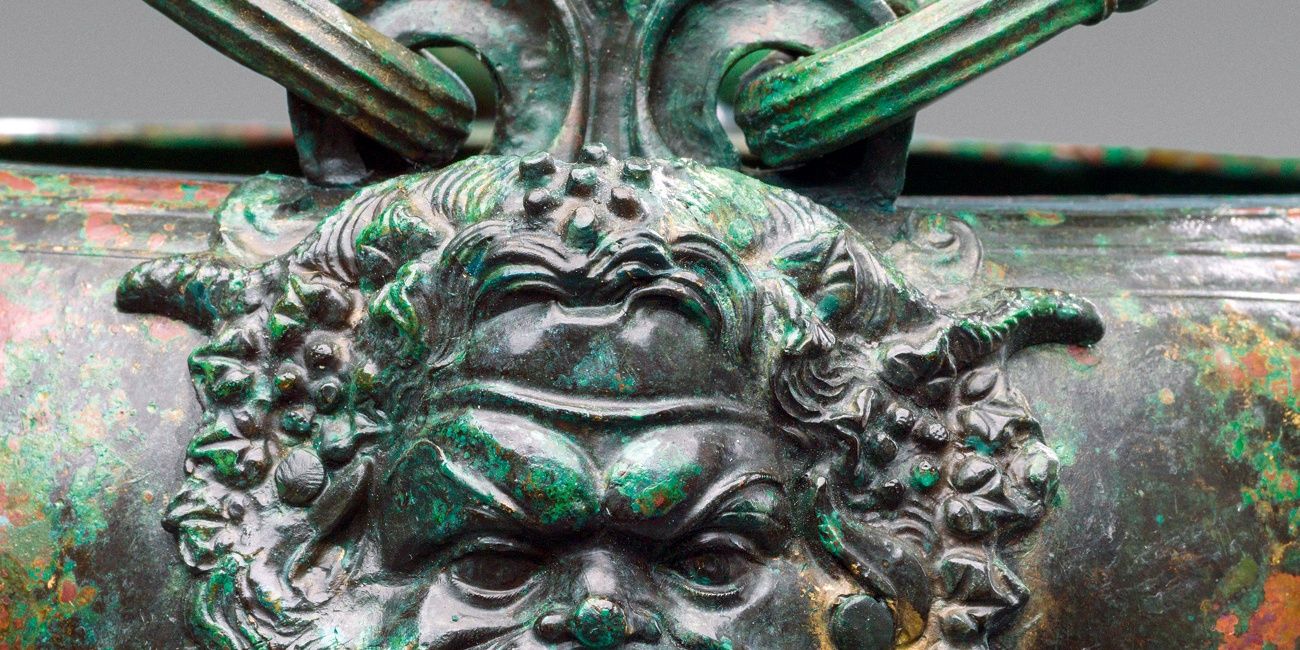
Pan is one of the most popular lesser gods in the Greek pantheon. This nature god was apparently begotten while Hermes was in the form of a goat, leading to the birth of Satyrs.
RELATED: 10 Games To Play If You Love Risk Of Rain
Pan is well-known as a God of music, although that honor mainly belongs to Apollo. Pan invented the pan flute, a pipe instrument made from reeds that have been bound together. He also represents something much larger in the grand scheme of things, especially since his name means "All".
4 Jung Considered Him The God Of The Unconscious
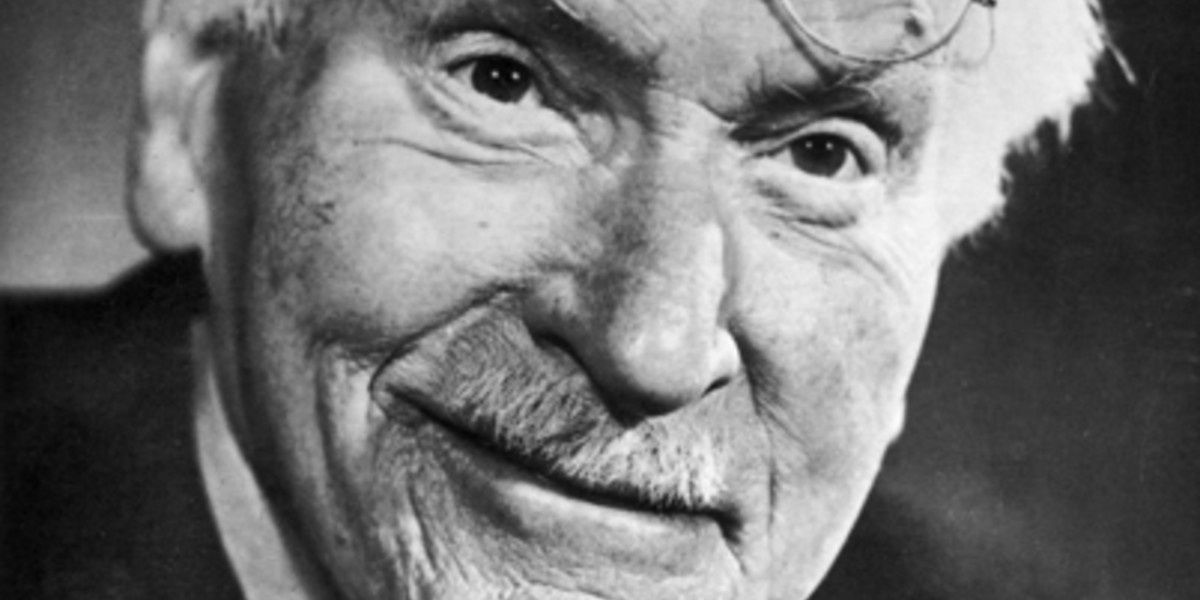
Carl Jung was a student of the founder of modern psychology, Dr. Sigmund Freud. Although they had some fundamental disagreements about the way the mind should be considered, there was mutual respect between the two.
One of Jung's most important contributions to the study of the human mind was the concept of Archetypes. Archetypes are primordial aspects of the mind that pop up in stories and in the behavior of people. For Jung, the archetype associated with unconscious thought was Hermes.
3 Atlas Is His Grandfather
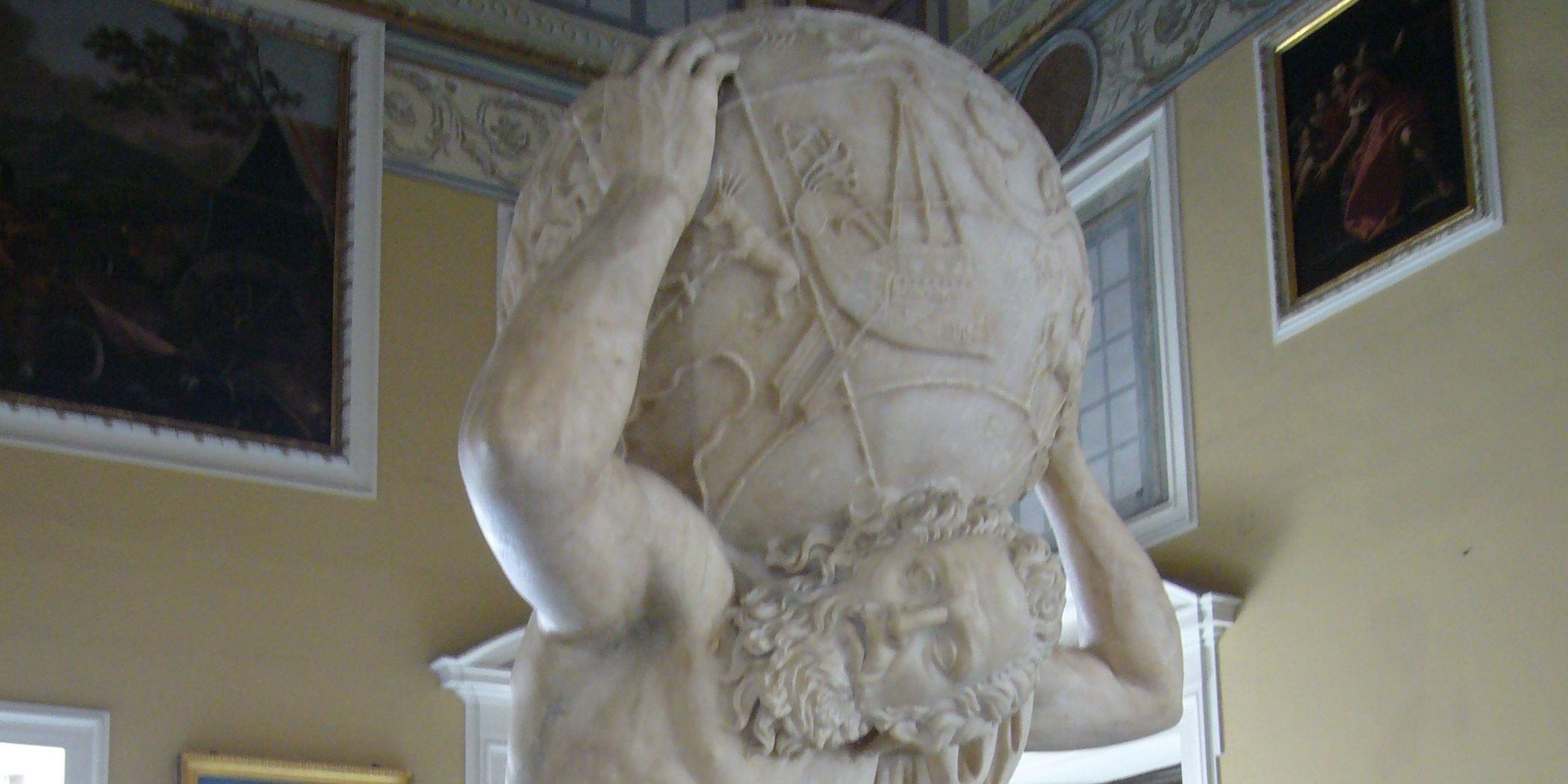
One of the most famous images in Greek mythology is the image of Atlas, holding the Earth on his shoulders. Atlas was a Titan, meaning that he fought the Gods during the battle towards the beginning of time.
RELATED: 10 Hades Memes Only True Fans Will Understand
As a result, Zeus punished Atlas for his treachery against the Gods once the Gods emerged victorious. Since Hermes is the son of Atlas' daughter Maia, Atlas is Hermes' grandfather. Then again, the family tree of all the Gods is incredibly convoluted.
2 One Of His Lovers Slew Medusa

Back in the days of ancient Greece, the concept of homophobia hadn't even arisen yet. Love was love, and both Gods and men would frequently fall in love and have relationships with those of the same gender. Hermes was no exception to this.
While Hermes had female lovers, one of his closest was Perseus. Mythology buffs might recognize this name as the Greek hero who slew the Gorgon known as Medusa.
1 He Gets Along Very Well With Mortals
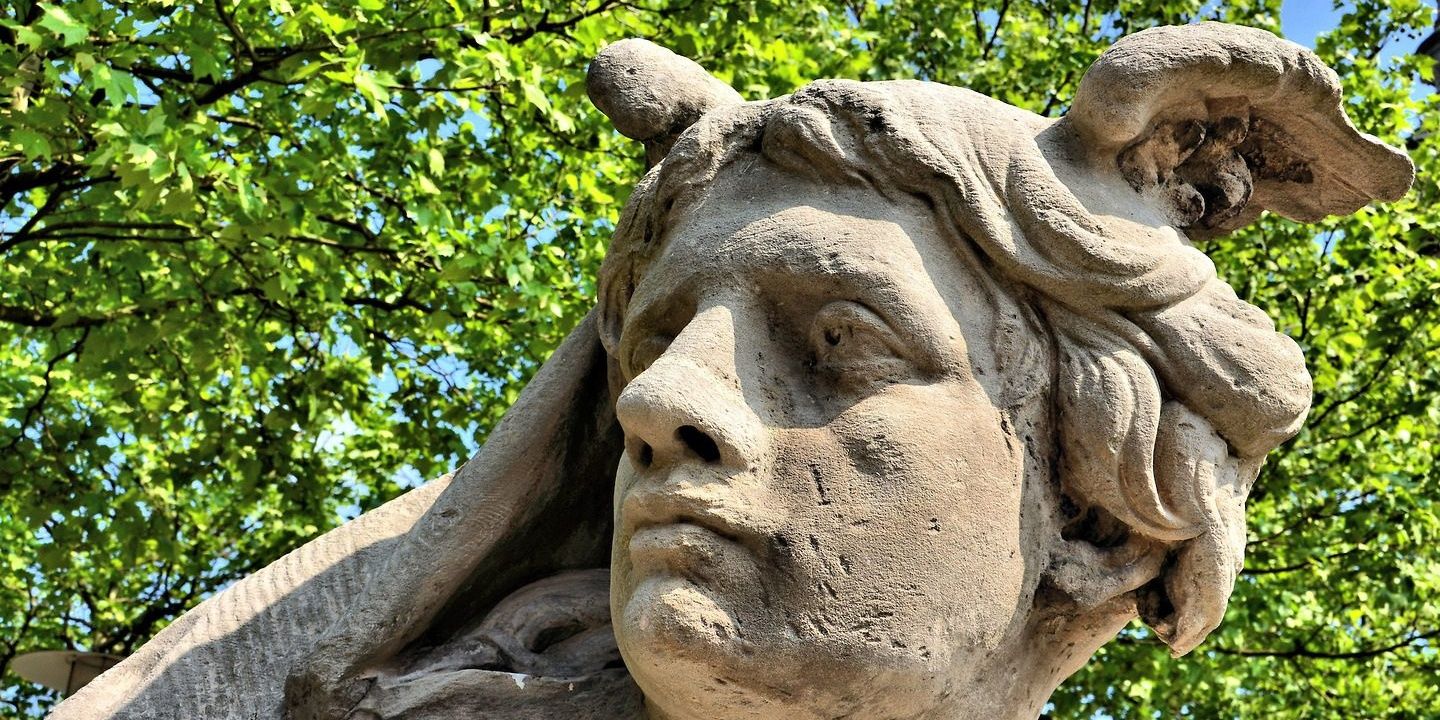
Most of the Olympians were pretty uncaring when it came to mortals, except those paid them tribute or gave offerings. Some could even be downright vengeful. Hermes was different, and instead was one of the few who loved mortals.
He also frequently interceded in their lives, for better or worse. Part of this was due to his trickster attitude, and mischievous nature. Even so, he did his best to reward and help mortals more often than not.

